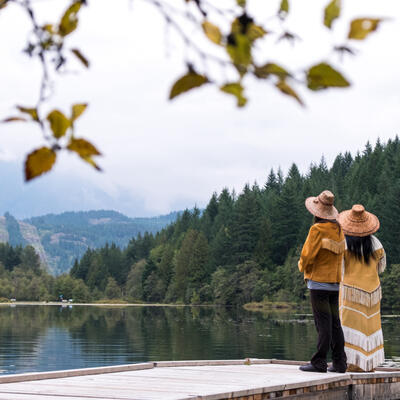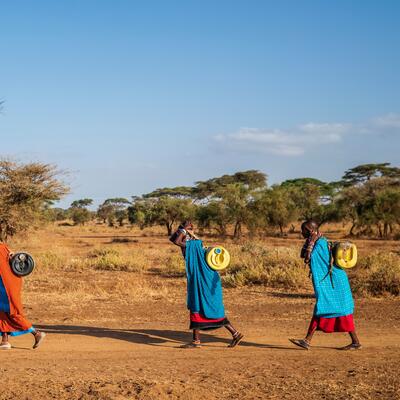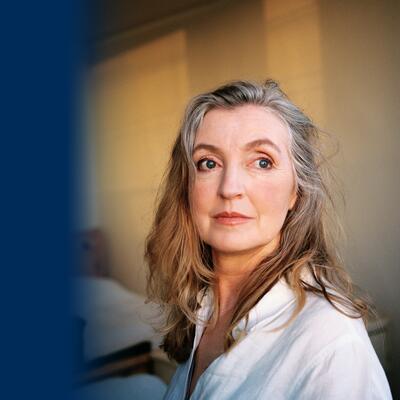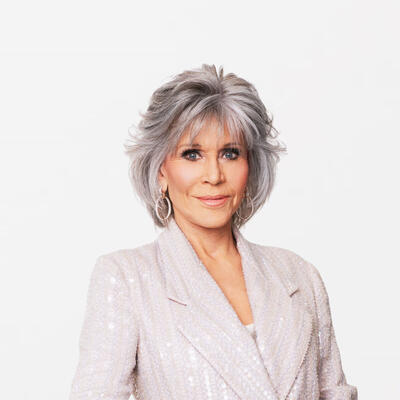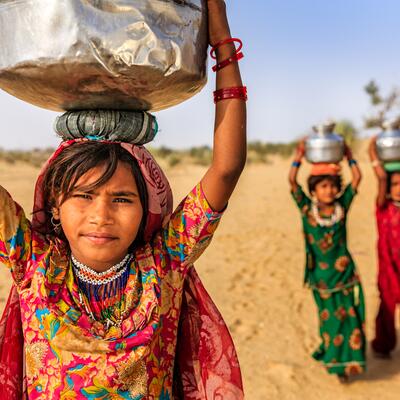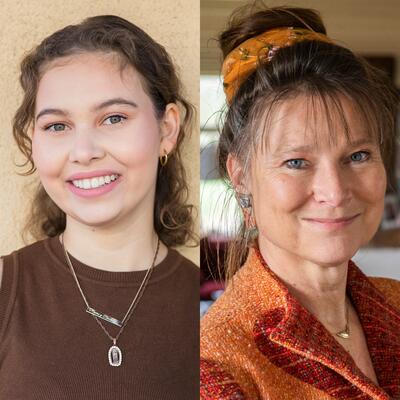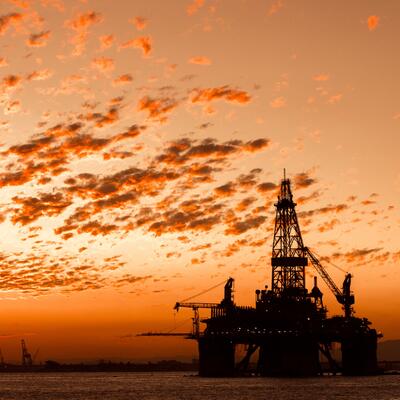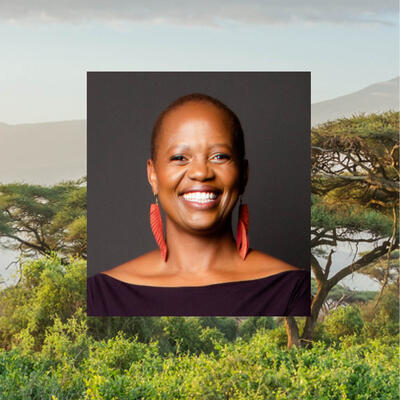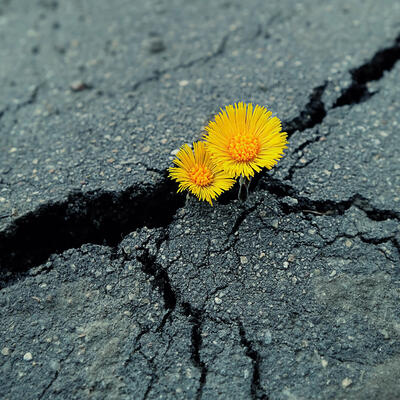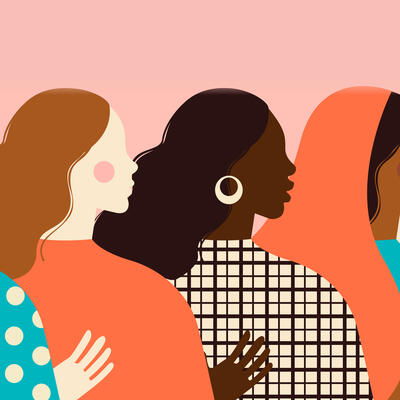
Empowering Women: The Climate Solution We Don’t Talk About
Guests
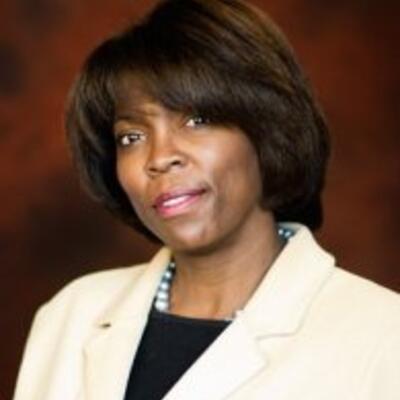
Ertharin Cousin
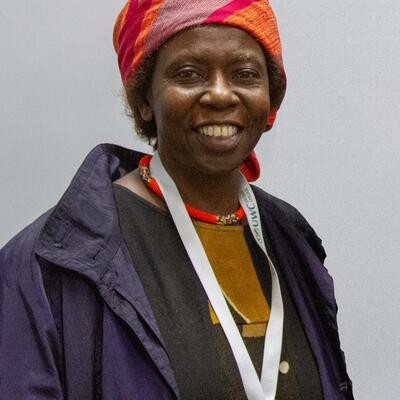
Musimbi Kanyoro
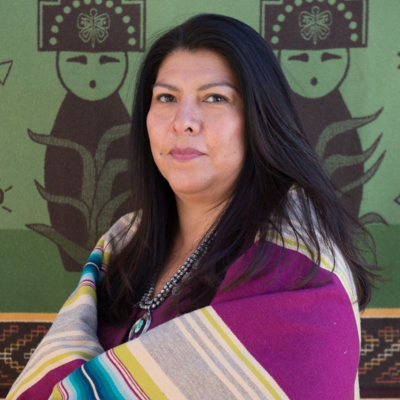
Corrine Sanchez
Summary
Could empowering women power up the climate movement?
We often talk about climate change and gender equality as separate issues. But the truth is that throughout the world, women’s empowerment is directly linked to the climate fight in many ways, from food security and economic independence to education and reproductive freedom.
By 2050, the world’s population could reach ten billion. That means our planet’s food production will need to increase by fifty percent. And in most countries, women make up more than half of the agricultural workforce. But something doesn’t add up, says Ertharin Cousin of Stanford’s Center on Food Security and the Environment.
“We know that, despite that significant percentage of women in the agriculture system, that they don't have equal access to the tools, the finances, the training that is necessary for them to produce the harvest that are required in a climate affected world,” Cousin says. “What that means then is that we can't solve the growing need for food access unless we equally invest in those women.”
Musimbi Kanyoro, former head of the Global Fund for Women, joins the conversation from Nairobi. Rains and floods fueled by climate change have devastated the country in recent weeks.
“People's houses have been swept away,” Kanyoro reports. “A woman who was on the media yesterday talking about…the fact that she was a farmer woman, and in their farm, they had all the harvest was ready for being harvested…and it was all swept away.
“So she has no house to go back to, she has no food, she has no income.”
As humans continue to test the number of bodies that can fit onto a planet of finite resources, empowering women through access to education and family planning may be at the core of establishing a healthy population balance. But for women to take charge of their own lives, families and futures, they will have to overcome some deeply entrenched power dynamics. Ensuring justice for women globally, Kanyoro says, requires that we address the patriarchal system that holds them back.
“It’s a system that gives privilege to male persons and underprivileges the female persons,” she explains. “We as women and men are all victims of it, and we need to be able to speak out against it, to be angry about it and to find ways in which we can be able to right what is wrong in regards to equality…climate change, as well as in the areas of sexual reproductive health.
Kanyoro believes that investing in education is key to solving many of these problems.
“I'm very inspired by the courage of young people, because young people are able to see quite a lot of how these things are interconnected,” she says. “We should invest in women and the leadership of women…and in the education of young people.
“Many young people are really providing leadership in these areas,” Kanyoro continues. “And because they come to these areas without the stigmatization and patriarchy, without being extremely rooted in patriarchy in the way in which older generations have been rooted in, there really can be a future that opens up someplace that we could go to that is a better place than where we are today.”
Additional speaker:
Evelyne Ajwang, Programme Manager MNCH/FP at Pathfinder International
Related Links:
World Food Programme
Center on Food Security and the Environment
Global Fund for Women
United World Colleges
Tewa Women United
Pathfinder International
This program was recorded via video on May 21, 2020.
Full Transcript
Greg Dalton: This is Climate One. I’m Greg Dalton.
By 2050, the world’s population could reach ten billion. That means our planet’s food production will need to increase by fifty percent. And in most countries, women make up more than half of the agricultural workforce. But something doesn’t add up.
Ertharin Cousin: They don't have equal access to the tools, the finances, the training that is necessary for them to produce the harvest that are required in a climate affected world.
Greg Dalton: For women to take charge of their own lives, families and futures, they will have to overcome some deeply entrenched power dynamics.
Musimbi Kanyoro: Patriarchy is a system...that gives privilege to male persons and underprivileged the female persons. We as women and men are all victims of it. [:14]
Greg Dalton: Empowering women - the climate solution we don’t talk about. Up next on Climate One.
---
Greg Dalton: Can empowering women power up the climate movement?
Climate One conversations feature oil companies and environmentalists, Republicans and Democrats, the exciting and the scary aspects of the climate challenge. I’m Greg Dalton.
We often talk about climate change and gender equality as separate issues. But the truth is that throughout the world, women’s empowerment is directly linked to the climate fight in many ways, from food security and economic independence:
Ertharin Cousin: I have never in all of my work met a woman who wanted to stand in a line for food. Everyone wants to feed their own children.
Greg Dalton: ...to education, reproductive freedom and power:
Musimbi Kanyoro: 80% of farmers in Africa are women. How are they going to be able to run their work, if every year, every nine months they have another child. It impacts on their health, their ability to be able to work.
Greg Dalton: On today’s program, we'll talk about some of the ways that empowering women and righting gender inequities can make a difference in the battle against climate change. Joining us from their homes are three guests on the front lines of the social justice struggle.
Ertharin Cousin is former Executive Director of the World Food Programme and currently a visiting scholar at Stanford Center on Food Security and the Environment. Musimbi Kanyoro is former President and CEO of the Global Fund for Women, and presently Chair of the Board at the United World Colleges. She’s beaming in from Nairobi. And Corrine Sanchez is Executive Director of Tewa (TAY-wah) Women United, a grassroots organization in New Mexico.
Greg Dalton: Last December, Musimbi Kanyoro and about a hundred other women journeyed to the bottom of the world to learn more about climate change.
PROGRAM PART 1
Musimbi Kanyoro: Indeed, going to Antarctica was quite an experience for me. Traveling with women scientists from many different fields meant that we could learn about the impact of these fields because the objective of the trip was a scientific expedition to specifically understand and speak about climate change while experiencing some part of the world where we can see something that you can hold on and hope for and say, if we keep our world safe and secure and do not disturb it, this is what it would look like. Because part of Antarctica is still quite whole.
So we spent time learning six hours every day about climate change in different ways. How does it impact different people different places and how can each one of us take the leadership that is needed. I have always been in the leadership of women and advocacy work and so was already involved in matters of climate change. But what changed me was the ability to be with these women, many of whom such as water managers, engineers from the Heathrow Airport for example, medical practitioners that treat people not only on their physical health but also mental health etc. And really putting together how all of these things come together and we can speak about climate change from many different possibilities using both data from science as well as the experience of people.
And so that trip changed me. It told me that I can actually change the way of speaking and speak about how climate change has impacted the people in the place where I grew up because I know it really well. I grew up where the rivers were flowing and we could see the water. And it’s a farming area and the farmers knew what season were going on what seeds to plant and not to plant. And today, that is not the case. So I joined many other grassroots women to be able to articulate in a language that people can understand about the impact of climate change and not leave it very far up in such a way that not everybody understands what we are talking about.
Greg Dalton: Corrine Sanchez, your activist half was ignited when you attended the Beijing Women's Conference in 1995. Tell us about that journey and also if you felt like you were privileged to be there.
Corrine Sanchez: So for me going to Beijing was an unplanned kind of event because of Tewa Woman United my mother and other women in our community who have been engaged in this work while I was away at school and college they started Tewa Women United when I was graduating from high school. But to be able to come back during the summers and to see the power of women from my community, which is really has been impacted by colonialism and patriarchy and to travel to Beijing and I say this is where my fire for activism and finding my voice and really stepping into that light came as I witnessed thousands and thousands of women coming from all over the globe to just give voice to the concerns of their community. Stories of women that stayed for years and communities that raised money to send one or two delegates or representatives to that space was empowering. And for me, as a young indigenous woman who heard and understood genocide the colonial history of our communities the understanding of what that meant as far as impacts on economics impacts on our access to health and education but was taken away from our communities, our languages and how that was related to environment.
So coming from my Tewa community, my Tewa-Tewa community it’s about the wholeness it’s about the interconnection it’s about understanding what happens across the globe is a direct result of what we’re doing here. And what happens there is a direct result of what we’re experiencing. And growing up with that knowledge was hearing the stories and hearing the songs, right.
And going to Beijing really was a politicizing moment for me because it expanded my circle like I understood that there was these levels of impact that we had but going and hearing the stories of women that were sharing what was happening the continued genocide that is happening in this world. People talk about it being over and done and part of history. But when we talk about the connections with our communities in South Africa. When we talk about our communities in the Philippines, the taking away of seeds of knowledge of that food sovereignty and seed sovereignty and pushing monocropping and pushing that impact and what we know of how that impacts our climate and where we find ourselves. It was there that I realized that I did have privilege even though I am a woman of color, even though I'm indigenous, even though I was young there was still a lot of privilege that I was gifted with in some ways here in my community. And there is a lot of ways that oppression and racism and classism takes that away and takes our power and our voice. But going there and realizing that though I was a survivor of sexual trauma and violence that there were women that faced immediate death and murder. And then also realizing, you know, it took Beijing but realizing that here now in the United States that there are women and families indigenous women as well as African-American women our immigrant communities that face that eminent death, right, because of these different systems and oppressions that are happening.
But in Beijing, I saw the power of women being able to come together to really give voice on all levels, political, down to the mothers that were just trying to reclaim breast-feeding and reclaim birthing in their communities. And being able to bring that back to our community here and to really commit to that transformation that I witnessed in the stands that I witnessed in the small classrooms of women gathering and knowing that this responsibility lays within on my shoulders and also the generations to come.
And so for me, Beijing just lit that fire and it hasn’t stopped and it continues to be that we find the heart that we find the compassion even in those darkest times to make that transformation and the change that we need to. Thank you.
Greg Dalton: Thank you for sharing that. Ertharin Cousin, you’re a daughter of a community organizer and a social worker. Where does your light and fire come from?
Ertharin Cousin: I was born this way. At an early age it was important to my parents that their daughters understand that though we lived in the inner city of Chicago we grew up in a community called Lawndale which is on the west side of the city of Chicago. Lots of books have been written about the challenges of this community. That we were blessed with two parents who had the ability to educate us and to give us an understanding that we were in the community but not of the challenges of that community. And so they often drove us to communities where people have more and communities where people had a lot less. To help us understand to what disparities meant in real terms to real people. And to give us a sense of responsibility for not just self and family and community but ultimately that grew into responsibility for nation. And as my experiences progressed to global community. And recognizing that we have the both the opportunity to and the kind of the circumstances that demand that we all work together to ensure that we can provide for the sharing of prosperity across racial lines, gender lines and color lines. And that does not come unless each one of us accepts that responsibility.
Greg Dalton: So Musimbi Kanyoro, many people hear climate change, they think of a polar bear, maybe a coal fired power plant, maybe a solar panel. They don't think of a woman carrying water or a woman in general. So help us understand the connection between climate and women's issues, women's education and women’s empowerment?
Musimbi Kanyoro: Those associations, with say polar bears not being able to have a place to be comfortable are relevant and they are important, or us retaining a global warming of 1.5 degrees is a good scientific knowledge. But indeed they are difficult for most shall I say normal people to understand and associate with. They’re not wrong, they’re just difficult. And sometimes they do not tell people to engage. Those of us that are working now in the area of climate change, have begun to use a frame of climate justice. And when we use the word climate justice, the really focus is to try to think of about the people that are impacted by the climate change. So that we can be able to tell the story in such a way that people can actually associate it with something that they can identify with.
So for example, there are rains and floods going on right now, as I speak to you in my own country, people's houses have been swept away. A woman who was on the media yesterday talking about her family, talked about the fact that she was a farmer woman, and in their farm, they had all the harvest was ready for being harvested. And some of it sold, some of it used in the farming and it was all swept away. So she has no house to go back to, she has no food, she has no income. And then she showed her two children, small children, who are likely to be probably affected by pneumonia or bilharzia or any of the other water borne diseases and coal diseases. And then we are at the time of the COVID-19 as well. These people, these communities could not talk anymore about distancing themselves, distancing themselves from each other. They could not talk about wearing masks. They could not talk about anything that we have in place about cleaning their hands, because the water flows that are coming out of the floods, are no longer clean water to clean their hands. All of that was swept away.
Now, if you link that, what has happened in that place too, what has been happening in regards to climate change that these droughts, these floods, their impact on people, and their impact on communities, and the vulnerability of those communities that are poor. And specifically this woman whose name I'll give as Maria, felt and you saw her speak for herself, you really see that there is something completely amiss if we don't think of her as a person. And look for a way, in which justice can be given to her. Attention on health, because when things like climate change happen, the impact on different, there is a difference on how or they impact people differently. Those who are vulnerable already like poor, those who are women. Those who are children those who have disabilities suffer in ways that are different from people who can mitigate these changes by themselves. These inequalities make people experience vulnerabilities in different ways. And until we deal with those inequalities our words will address only those that have possibilities to do something about it. And there are others who cannot do something about it.
And so finally I want to say that there are ways that we can talk about climate change by bringing it closer to the experiences of people. But also we can tell stories in different ways. We can tell stories in films. We can tell stories in podcasts. We can tell stories by bringing actually the actual people that had been impacted to tell their own story and that is the loudest and the best way in talking about climate change. So that the scientists can be able to take this language of people and make it into a language that will engage people's emotions as well as people’s intellectual thinking as well.
Greg Dalton: Ertharin Cousin, you’ve traveled a lot and talked to a lot of women as a former head of the World Food Programme. What are some of the stories that you’ve seen that powerfully connect women's empowerment with climate resilience and climate justice along the lines Musimbi just mentioned?
Ertharin Cousin: I was listening to Musimbi and nodding my head yes, yes, yes, because her articulation of the experiences that my travels have given me just provide more evidence of where the anecdotes that I can bring to you are based upon the experiences not just of the women I saw but women around the world.
For example, when I was in South Sudan after the country became South Sudan. And we were meeting with women in the fields who had migrated back from Sudan after that war, we can talk a great deal about the conflict ongoing in South Sudan. But let’s just talk about that period of time when there was hope and women were given equal access to the seeds to the tools to the financial support as well as to the training that was necessary for them to plant and grow maize. They were so proud to have the ability to grow a crop with other women in their cooperative that for the first time gave them financial resources which gave them voice in their households that they did not previously have because they were able to bring money into the house. And they were able to their collective efforts to support the school fees that were necessary for their children, as well as addressing their own empowerment as we like to say. And the women said to me, this was the first time that they felt listened to.
But what we know is that the effects of climate change are resulted in more erratic rains and that same woman and her cooperative who has the access to finances because she can grow a harvest, we've seen in subsequent periods no longer having the ability to have the resources that they need and being forced to stand in a line.
And what my experiences tell me is that when we give women equal access to the training to the tools to the finances that they will grow the food that is necessary to avoid their need to stand in those lines but that means that we need more climate resistant we need more drought resistant seeds. We need more research into agriculture that is smarter. That continue to ensure the ability of that woman, her community, to have the opportunity to provide for both her food security and the economic security of her family. I have never in all my training all of my work met a woman met a family who wanted to stand in a line for food. Everyone wants to feed their own children. But when the circumstances don't allow them the access to that opportunity it requires that we provide the provision of assistance that is necessary.
And so we know that the projections of population are to 9 1/2 to 10 billion people by 2050. Which means that we need to increase production of food by 50% by 2050. We also know that women produce the agriculture laborers that between 40% and 70% for an average of 43%, 70%, in some other countries. And we know that despite that significant percentage of women in the agriculture system that they don't have equal access to as I said the tools the finances the training that is necessary for them to produce the harvest that are required in a climate affected world. What that means then is that we can't solve the growing need for food access unless we equally invest in those women.
---
Greg Dalton: You’re listening to a Climate One conversation about finding climate solutions through educating and empowering women. Coming up: power, patriarchy and reproductive justice.
Corrine Sanchez: There's also this dark history that we really need to understand when we talk about long term contraceptives and hormones and all of that impact on our reproductive health.
Greg Dalton: That’s up next, when Climate One continues.
---
Greg Dalton: This is Climate One. I’m Greg Dalton, and we’re talking about climate change and women’s empowerment. My guests are Ertharin Cousin of the Stanford Center on Food Security, Musimbi Kanyoro of United World Colleges, who joins us from Nairobi, and Corrine Sanchez of Tewa Women United in New Mexico.
Greg Dalton: Evelyne Ajwang is a nurse and midwife who also teaches family planning and reproductive health in small towns and villages in Kenya. We asked her about the obstacles faced by the women she works with.
[Start Playback]
Evelyne Ajwang: Women in Kenya normally are not mostly economically empowered. So they depend mostly on men in terms of their livelihoods. They even whatever the woman would want to do she has to get permission from the husband. So this would be a challenge mostly in terms of decisions and matters reproductive birth, the husband has to agree with whatever she wants to do. And in the issues of myths and misconceptions surrounding reproductive health and family planning. For example that we know when results in family planning either this woman will become infertile in the future which is not truth or myth. We realized that men are not well conversed on with issues of contraceptives and also family planning. They are very green and ignorant.
So what we did is we targeted men with the information. Then they are realizing, hey, if we plan our families then the health of this woman will be better. And that’s what you’ll tell him that when you have a larger family, your economics is also not stable. The challenges of population health and environment are integrated. There’s no way one can ever separate the three. Because with a larger population meaning less r esources available to these communities then this people will be using the available natural resources. You know the resources keep on depleting.
When you empower women you empower a whole community. Because when you give knowledge to these women and this is something that is factual was finite, this woman is able to deliver this information to the whole community and this thing will spread.
[End Playback]
Greg Dalton: That was Evelyne Ajwang, She manages a maternal neonatal child health and family planning program for Pathfinder International in Kenya.
Overpopulation has been identified as a key factor in climate change, leading to both increased carbon emissions and worldwide food and water insecurity. Therefore family planning is seen as one way to combat global warming. But as Corrine Sanchez explains, the issue of reproductive justice has a complex and fraught history that goes back for centuries..
PROGRAM PART 2
Corrine Sanchez: There's no way that we as women cannot be involved in reproductive justice issues because it involves our bodies and our choices and the long-term productivity or reproductive ability of our communities. And so I come from, you know, come from this in many different angles of thinking about contraceptives and thinking about reproductive health and thinking about a lot of different challenges that our communities face. And as communities that had a targeted genocidal strategies against our communities, right, when colonialism happened rape and assault and murder of our children and our women were a part of that strategy it still continues to be a part of the military strategies across the world to wipe out communities, to take away their cultural sense of being, their mother tongues.
And so as a community that has seen that impact of reproduction we also had forced sterilization of native women in our communities. We've also had the practice of people bringing in contraceptives and practice and testing those in our communities. So I know that there is this upside and there's also this dark history that we really need to understand when we talk about long term contraceptives and hormones and all of that impact on our reproductive health. And when we talk about the power and voice of women to choose. And I agree that as we become more educated and we have this medically accurate information. This exists in our A’Gin Healthy Sexuality & Body Sovereignty Project that we've been implementing in our communities. As we give people medically accurate information we trust that they’re gonna make the decisions that best support them and their families.
So, I don't want to say lightly that reproductive issues are, you know, just this and this, they are about understanding that complex history and understanding the impositions of other people's religions and beliefs on other peoples. And how do we recognize the humanness and the humanity of all of us. And I want to go back to where we're at in this country of the United States. This colonial space where African-American babies are being murdered not just in the womb, but as individuals throughout their lifetime. That our children, women of color, people of color, children are being murdered because they're being seen as different. And that is a reproductive justice issue, not just the contraceptives, not just the population control. But really understanding that history of how people have used domination over others to implement political policies, and strategies that have erased populations that displaced people.
We really need to understand in our communities the patriarchy and the patriarchal system, the beliefs that come in when people believe that they have dominion over others. And how do we talk about transforming that power dynamic in our individual households, to our systemic societal level. How do we have those deep conversations.
So that we can now have in our organization and in our communities these conversations about engaging men and boys in the violence that's committed against women and girls, because most of that violence is coming from men and boys. And so healthy masculinity and how do we talk about that, how do we talk about toxic masculinity. I think those are all pieces of that reproductive justice that needs to continue.
Greg Dalton: Musimbi, you have a doctorate in feminist theology. A doctrine of feminist theology. Does addressing climate change mean sort of attacking patriarchy, some of the deep-rooted systems, gender power, male power, and dominance that Corrine just talked about. Should that be part of the climate conversation?
Musimbi Kanyoro: Yes, it should be. Talking about any feminist whether they're coming to it from a social perspective from a secular, from a theological perspective, etc., really talks about justice. And one way for us to be able to ensure justice for women, is to be able to address patriarchy, because we are all victims of patriarchy. Patriarchy is a system, and it’s a system that gives privilege to male persons and underprivileged the female persons. We as women and men are all victims of it and we need to be able to speak out against it, to be angry about it and to find ways in which we can be able to right what is wrong in regards to equality. And I think many people are working on this, from many, many aspects of their lives. And in climate change, as well as in the areas of sexual reproductive health. We cannot be able to get to the right answers without also addressing patriarchy.
It's a difficult area, but when we think of sexual reproductive health for women, we think of it in terms of many different directions. I have learned by working for many years with Global Fund for Women, working with them and the organizations that address women, etc. that the health issue for women is important. If we are able to say, for example, in Africa we say that 89% of women in the informal sector, supporting the most important aspect food on the table, kids, etc. And if we are able to say things like 80% of farmers in Africa are women. How are they going to be able to run their work, if every year, every nine months they have another child. It impacts on their health, their ability to be able to work. Women spent on the continent of Africa, for example 40 hours a week, on just fetching water alone, before they even do the other jobs that they have to do. So when we talk about making accessibility, reproductive health for women, we want women to be safe and to be healthy.
And this covers many ways. It may cover family planning, which might be about spacing kids, or deciding when a woman wants to have a child and with whom so that it’s not forced. It might be about pre-ops, postnatal health, it might be about a contraception, it might be about having access to safe abortion. It might be about ability to get the information, age appropriate information at the right time.
Currently, I just want to say I'm very inspired by the courage of young people, because young people are able to see quite a lot of how these things are interconnected. And I think that investing, we should invest in women and the leadership of women to be able to get the differences that my sisters on the panel have talked about. But we should also invest in young people and in the education of young people. And I see through the colleges that really work within the United World Colleges many young people are really providing leadership in these areas. And because they come to these areas without the stigmatization and patriarchy without being extremely rooted in patriarchy in the way in which older generations have been rooted in there really can be a future that opens up someplace that we could go to that is a better place than where we are today.
Greg Dalton: If you’re just joining us we’re talking about women's issues at Climate One. I’m Greg Dalton. My guests are Ertharin Cousin, former Executive Director of the World Food Programme. Musimbi Kanyoro, former President and CEO of the Global Fund for Women. And Corrine Sanchez, Executive Director of Tewa Human United. A grassroots civil rights organization in New Mexico.
We’re gonna go to our lightning round. I’ll ask a quick association of our guests. I’ll mention a person, place or thing and ask for their first response from their heart off the top of their mind unfiltered. Corrine Sanchez. What's one phrase or word that comes to mind when I say the new members of Congress elected in 2018?
Corrine Sanchez: AOC. Women power.
Greg Dalton: Musimbi Kanyoro. True or false, inheritance laws discriminate against women in 26 countries?
Musimbi Kanyoro: It’s false because there are more countries than that.
Greg Dalton: True or false. Corrine Sanchez, American capitalism was built on stolen land and stolen labor?
Corrine Sanchez: True, true, true.
Greg Dalton: Ertharin Cousin. True or false, the science is clear that GMO foods are safe for humans to eat?
Ertharin Cousin: I’d say true. The science is clear and we are too often driven by misconceptions.
Greg Dalton: We’ll come back to that. Musimbi Kanyoro. True or false, some women enable patriarchy?
Musimbi Kanyoro: True.
Greg Dalton: Also for Musimbi. I have benefited from white privilege more than I realize?
Musimbi Kanyoro: True.
Greg Dalton: Corrine Sanchez. I've been shaped by patriarchy so much that it's hard for me to see?
Corrine Sanchez: True.
Greg Dalton: Ertharin Cousin. As a talkshow host I should not ask women about gender issues unless I also ask men about gender?
Ertharin Cousin: True.
Greg Dalton: Alright. That ends our lightning round. I made that mistake earlier this week and my female producers scolds me on that. So thanks for that lightning round.
Ertharin Cousin, let’s come to the concentration of power because we’ve heard from Corrine about the importance of seeds and you’ve mentioned how much food production needs to increase to meet the demand of nine or 10 billion people on this planet. And industrial monoculture is one way that some people would say that food demand can be met. And I'm curious to hear whether that industrial monoculture is compatible with empowering women in the way that we’ve been talking about or that concentrates power and corporations in a very more concentrated way.
Ertharin Cousin: Increasing global food production by 50% to feed that 9 ½ to 10 billion people require diversity of solutions. And those solutions must include the 43% to 70% of women who participate in agricultural production. And that will include their participation in the existing systems of today, in organic production, in more biological and technological production that we’ll see in the future. There should not be a solution that is sustainable both from an environmental as well as a social standpoint that we exclude to ensure that we meet the opportunities for empowering all both men and women and feeding all on a regular basis and nutritious food that is necessary to support the adequacy of our lives.
Greg Dalton: I’m interested, Musimbi, how you see GMOs and industrial scale monoculture; are those in conflict at all with empowering women in agriculture?
Musimbi Kanyoro: I have been at two sides of these debate over the years. And I think that, I had the biggest change when there was a large famine in Ethiopia. And I went to Ethiopia for work and the GMOs were other different ways as seeds and so on and quick growing foods were being encouraged too so that people would be able to survive from famine. And I found that all of the words that I used to have to condemn the GMO were done just from a safe place when you are not there in the middle of famine. And I changed my mind. I changed my mind to say, we must do our best to ensure that any traditional farming foods, seeds, etc. are not neglected in favor of only GMOs or other kinds of farming. But we must know that there’s a place sometimes for all of these other possibilities scientifically grown foods. I changed my mind in the middle of a famine because I saw what death looks like.
Greg Dalton: Ertharin, climate disruption is hitting food production in many ways. Droughts and floods are impacting harvest, growing areas are changing and pests are on the move. One particularly dramatic and devastating example is swarms of desert locusts that are ravaging crops in parts of Africa and Asia threatening food supplies for tens of millions of people. Could you say what's happening and what's at stake with these swarms of locusts?
Ertharin Cousin: This is not the first time that locusts have affected agriculture in Eastern Africa, but it is one of the largest swarms that we’ve seen. And we also know that if we had invested last year in the eradication of the locust population we would not be facing the challenges that we see today. Let me just put this into terms, a locust swarm in a field can consume the same amount in one day that 35,000 people would eat. One day. And we know that in June or July the locust swarms in Eastern Africa will begin to hatch and grow and what COVID-19 has done has limited the access to the tools that are necessary to eradicate the locust swarms. But I've been delighted to see over just the last few weeks an increase in access to those tools by the governments of Kenya, Somalia, Ethiopia that are now beginning just beginning the work that is necessary directly. But I'd love to hear from Musimbi who is even closer to the actual ongoing activities.
Musimbi Kanyoro: The devastation is terrible in the areas where the locusts have come. And they have been in Eastern Africa all the way from Somali and they arrived in Kenya and we don’t know and in Uganda in some parts of Uganda as well. And they really already define that there will be famine because they eat everything and they have been in places which produce a lot of agricultural products. But they eat anything including grass, anything that grows they eat everything. This is why I think paying attention to science and thinking in advance can be helpful. But I don’t think that I could be able to blame all of these governments that they did not take science into account, etc. There are investments that are required long in advance and also and many of these governments have got so many things that they have to pay attention to. For example, right now, even though the locust are really a big problem. The focus on COVID-19 by these governments is just so urgent and so pressing that you don't even hear much about locusts in the media anymore. We know that something is happening but you don't hear as much as you hear on COVID-19. And so there’s just quite a lot of things that people have to pay attention to.
---
Greg Dalton: You're listening to a conversation about women's empowerment and addressing climate change. This is Climate One. Coming up, how food insecurity in other countries affects American national security.
Ertharin Cousin: When agricultural production detrimentally impacts households, and particularly women headed households where sons believe they have responsibility for meeting the needs of the family, they become ripe recruits for Al Qaeda and other terrorist organizations like Isis.
Greg Dalton: That’s up next, when Climate One continues.
---
Greg Dalton: This is Climate One. I’m Greg Dalton. We’re talking about climate change and women’s empowerment. Joining me today are Corrine Sanchez of Tewa Women United, Musimbi Kanyoro of United World Colleges, and Ertharin Cousin of the Stanford Center on Food Security and the Environment.
Before the break we were discussing the many ways that climate disruption is affecting food production in Africa and Asia - from floods to locust infestations. But we rarely hear about the thread between food insecurity and terrorist organizations like Al Qaeda and Isis. Ertharin Cousin connects the dots.
PROGRAM PART 3
Ertharin Cousin: We know that when there is food insecurity when agricultural production detrimentally impacts households and particularly women headed households where sons believe they have responsibility for meeting the needs of the family they become ripe recruits for Al Qaeda and other terrorist organizations like Isis. We are seeing this impact now in the Sahel for example, where Isis and Al Qaeda related groups that have now infiltrated into Burkina Faso, and Mali, Niger are now working to recruit the sons in families where they provide food as an incentive for those boys those young men to join their organizations. And that is being exacerbated by COVID-19 now because of the lack of access to food makes these young men even more vulnerable to the attraction of those who would provide the access to the food that the family needs. And so what climate and now COVID-19 are doing is to exacerbate it the challenges of poverty and low human developments in households that are in areas that have been infiltrated by terrorist groups and organizations to making those young men vulnerable to the appeal of these groups. And so we know that the investment in agriculture, the investment in food security, the investments in economic opportunity provide stability in the household and ultimately the stability in the community that limits the attraction of terrorist organizations
Greg Dalton: Thanks. If you’re just joining us we're talking about women's empowerment and climate change at Climate One. I'm Greg Dalton. My guests are Corrine Sanchez, Ertharin Cousin and Musimbi Kanyoro.
Musimbi, the world seems to be turning inward these days with COVID. We’re kind of sheltering thinking about me, here, now. And we hear a lot about community we’re talking about, you know, women's communities around the world. I’d like to hear your thoughts, is community strengthening now?
Musimbi Kanyoro: Yeah, I’m observing and we who don't leave in the USA right now, I’m also quite keen to see what is happening because you're really out in the pedestal. Everybody can see what is happening in the USA. There are three areas that I worry about COVID. One is that we had grown in the world a very strong globalization and sought globalization as something that is good. So for example in United World Colleges the reason that we bring students from every part of the world to study together in a particular college is so that we can be able to overcome the fear of differences and see that we are all human together and we can achieve a lot as human together. COVID has in some ways destabilized some of that because we had to hide quite quickly get into our geographical places and even not just in your geographical place but inside your house and stay locked in and we don't know what that is going to do to us.
But at the same time let me show the other aspects of it. There are a lot of webinars that are going on I’m part of and I have listened to and sat into webinars. And people that used to convene 50 people are now convening 500 people, which means that we are actually hearing each other in larger forums than we did before. And that is really important and we might also learn together that some of the behaviors that we have embraced over time for example, behaviors of destroying the environment were just too much trouble. Putting resources that we have for ourselves, you know, getting on and doing something just a few people we might realize that we could use some of those resources in different ways. Here we are talking and having this conversation while seated in our own houses. We couldn't do that before we would come to a studio where you are so that you could be able to get better quality of voice, etc. at the expense of each one of us getting into a car and driving to you or on a plane sometimes for only 15 or 30 minutes or two hours or two days at most three days meetings. So there are something that we're going to learn about what we could do together.
We have to guard against thinking like in the area of developing vaccines thinking that it matters who does it fast, it matters that we do it. And I think what COVID should be teaching us that the more collaboration that we have and climate work requires collaboration, collaboration and collaboration. Because it does not affect just one place. We are one world. And COVID might show us that indeed we are one world. Because we see what is happening to nature what is happening to fishes in the sea and to animals and to birds. They're having some freedom because we have got this one.
Well, and lastly I want to say that the other aspect of it that is important is for us to realize that when COVID is over and we get -- no, it might not be over, we might learn to live with it or it might be over in different ways. But when we get a vaccine where many people have need to get this vaccine. We have to see that we are it -- COVID has already shown light on the fact that the most disadvantaged ones are even more disadvantaged in the impact of COVID on their lives. We've seen in the USA we hear of the African-American communities or countries that are so-called developing countries you will see that we don't have infrastructure that will be able to help us mitigate as much as some of the other places. So when a vaccine is available, to be human we have to say everybody needs these vaccines. And not privilege those people that have resources for the vaccines. Because that is not a way to go forward into the future if we were have to be one humanity together.
Greg Dalton: A question from Barbara on Facebook. “If governments were to ask their citizens to help by considering having smaller families, would that offer some new perspective to break the historical oppression that some women have experienced?” Corrine.
Corrine Sanchez: Okay. I think it’s much more complex than that. Would the government asking me to do this when the government has implemented a lot of violences against us as indigenous women I find that as a challenge. I think our government should give us all access to universal healthcare access to contraceptives for free. All of these things. And then I think that women will make the decisions that are in support of them which in reality when you look at it when we were well supported we’re making the decisions to not have children. We’re making the decisions to look at our budget and our economies and think about that. So I think when you give women access to all of the information and the tools that they need that you're gonna see that it does impact population in the ways that being forced to or being imposed to may or may not show.
---
Greg Dalton: You’ve been listening to Climate One. We’ve been talking about empowering women. My guests were Ertharin Cousin, former director of the World Food Programme and a Visiting Scholar at Stanford Center on Food Security and the Environment;
Musimbi Kanyoro, former President & CEO of the Global Fund for Women, now Chair of the Board of United World Colleges, and Corrine Sanchez, Executive Director of Tewa Women United.
Greg Dalton: To hear more Climate One conversations, subscribe to our podcast on Apple Podcasts, Spotify or wherever you get your pods. Please help us get people talking more about climate by giving us a rating or review. It really does help advance the climate conversation.
Greg Dalton: Kelli Pennington directs our audience engagement. Tyler Reed is our producer. Sara-Katherine Coxon is the strategy and content manager. Steve Fox is director of advancement. Anny Celsi edited the program. Our audio team is Mark Kirchner, Arnav Gupta, and Andrew Stelzer. Dr. Gloria Duffy is CEO of The Commonwealth Club of California, where our program originates. I’m Greg Dalton.
